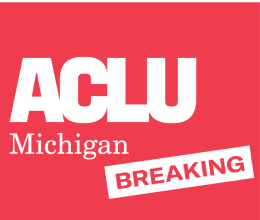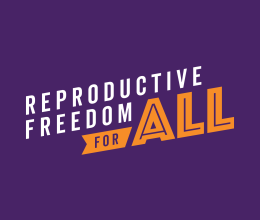DETROIT – After two successful challenges and for the third time in seven years, the American Civil Liberties Union of Michigan announced today that it is preparing to file a lawsuit in the latest effort to ban abortion in Michigan now that the Legislature has passed a bill previously vetoed by Governor Jennifer Granholm.
“This is an end-run around Governor Granholm’s effort to protect women’s reproductive rights in Michigan,” said Kary Moss, ACLU of Michigan Executive Director. “This attempt to eliminate abortions in all stages of pregnancy, like all the legislation before it, remains unconstitutional. Medical decisions should still only be made by a woman in consult with her physician.”
Senate Bill 395, the "legal birth definition act," was vetoed by the Governor in October. In her letter to the Michigan Senate, Governor Granholm stated that she vetoed the bill because such efforts have been repeatedly declared unconstitutional by the courts and that “Senate Bill 395 does not remedy deficiencies identified by the courts.” Today, the House and Senate both voted to enact the legislation following a citizen’s initiative. Under a provision of the Michigan constitution, a law enacted in this manner is not subject to a gubernatorial veto.
Like the previous two Michigan bills, successfully challenged by the ACLU in federal courts, SB 395 does not contain a sufficient health exception which has been repeatedly required by the U. S. Supreme Court. Additionally, 28 doctors and nurses from the University of Michigan Health System stated that the act “misstates medical fact and could adversely impact the medical management of birth.”
In 1997, in one of the first rulings on an abortion ban in the nation, a federal district court in Detroit declared Michigan’s ban unconstitutional and permanently enjoined its enforcement. Evans v. Kelley, 977 F. Supp. 1283 (E.D. Mich. 1997). Notwithstanding this decision, in 1999, Michigan passed a related, but differently worded law. Following a U.S. Supreme Court decision, the district court held the second Michigan ban unconstitutional for lack of “an adequate exception to protect the mental and/or physical health of the pregnant woman.” Womancare of Southfield v. Granholm, 143 F. Supp. 2d 849 (E.D. Mich. 2001).



